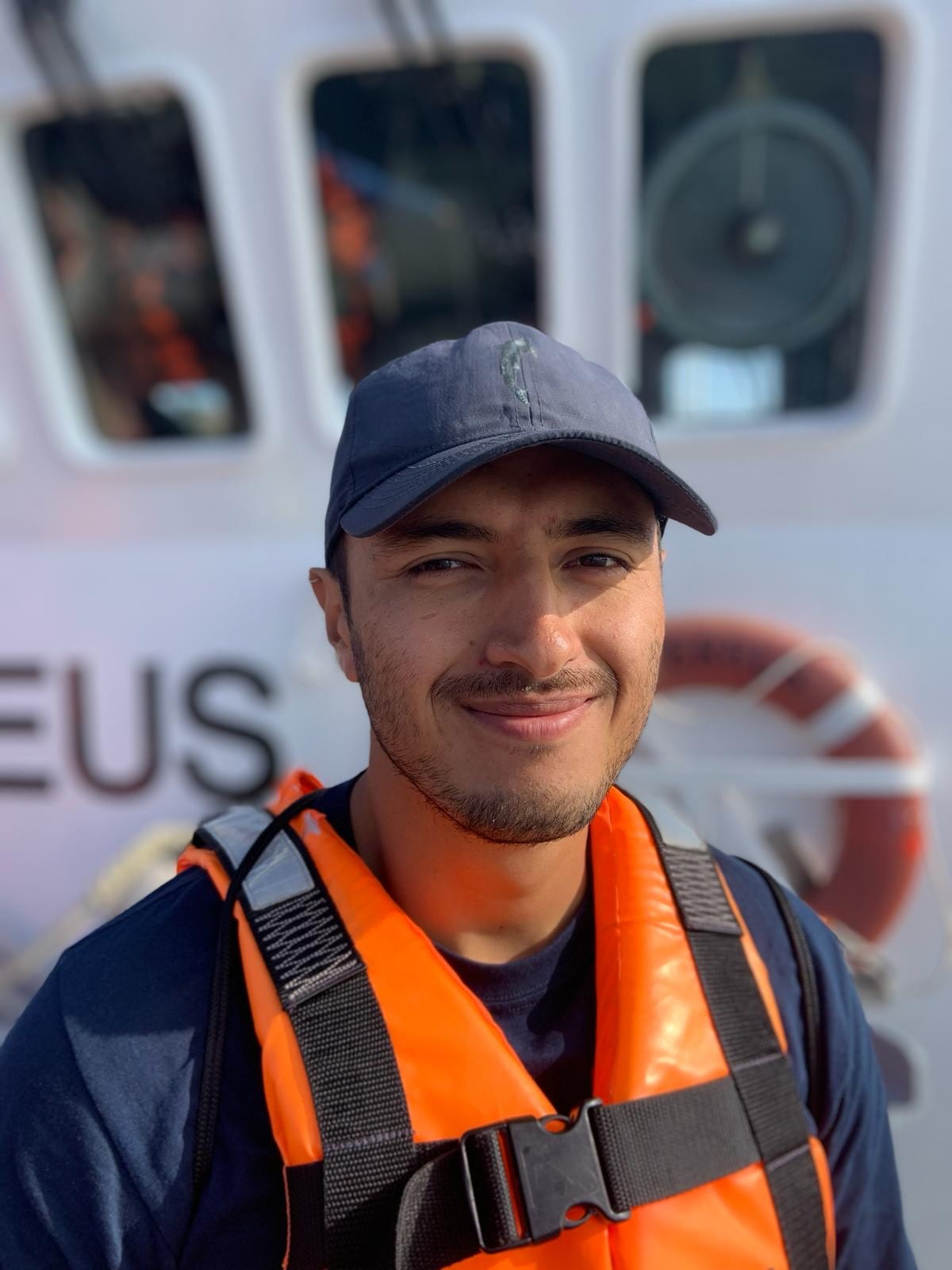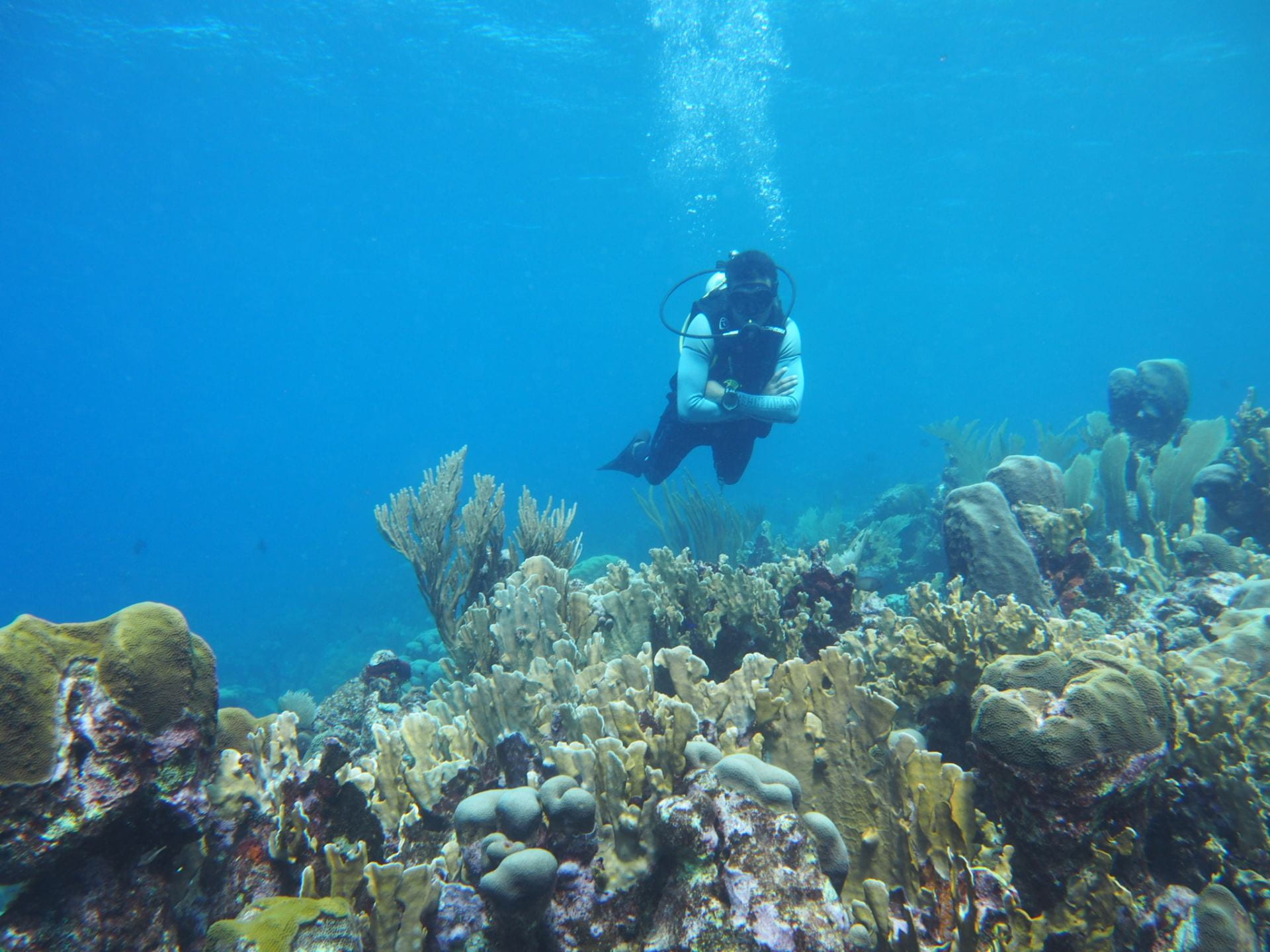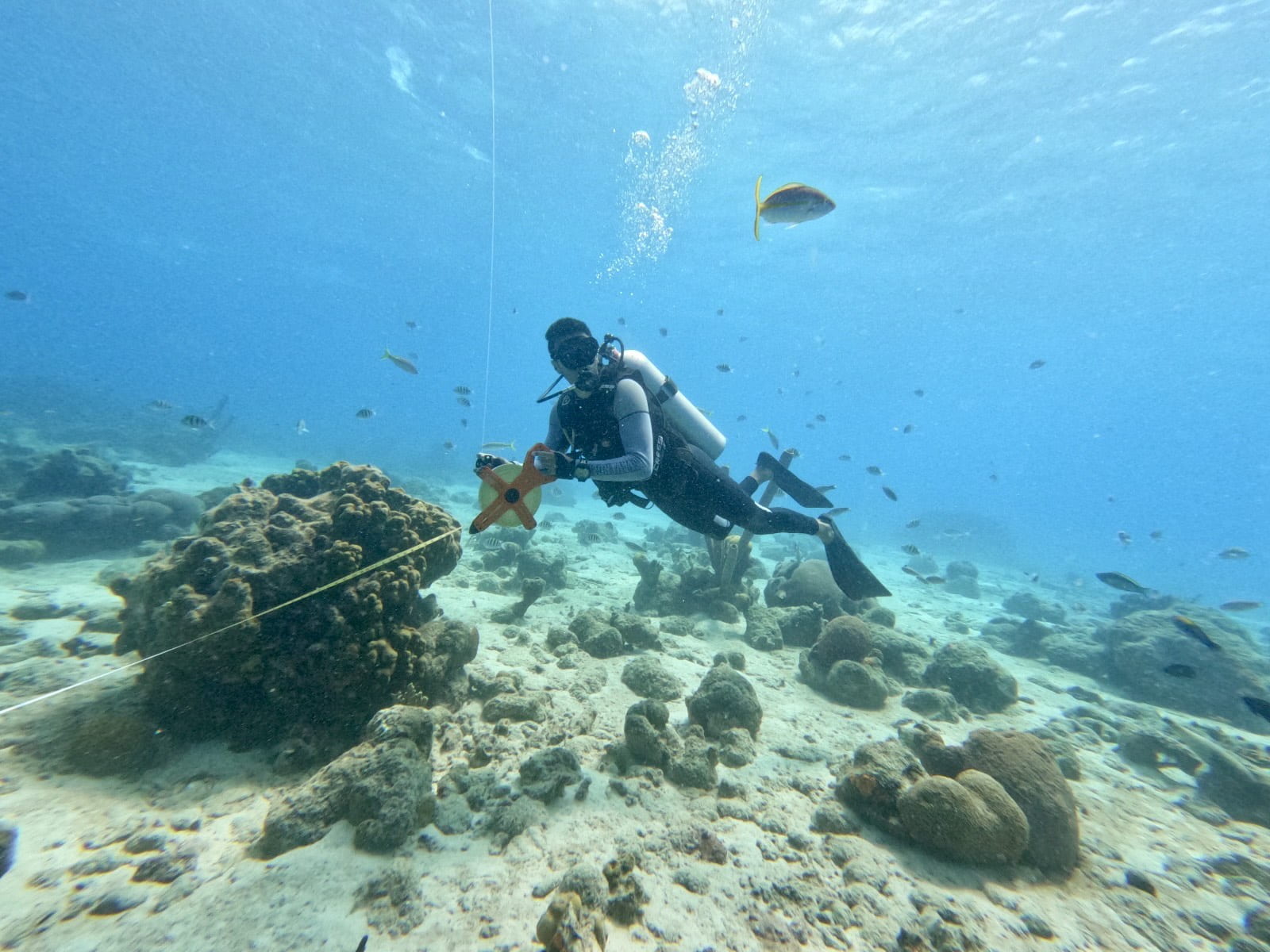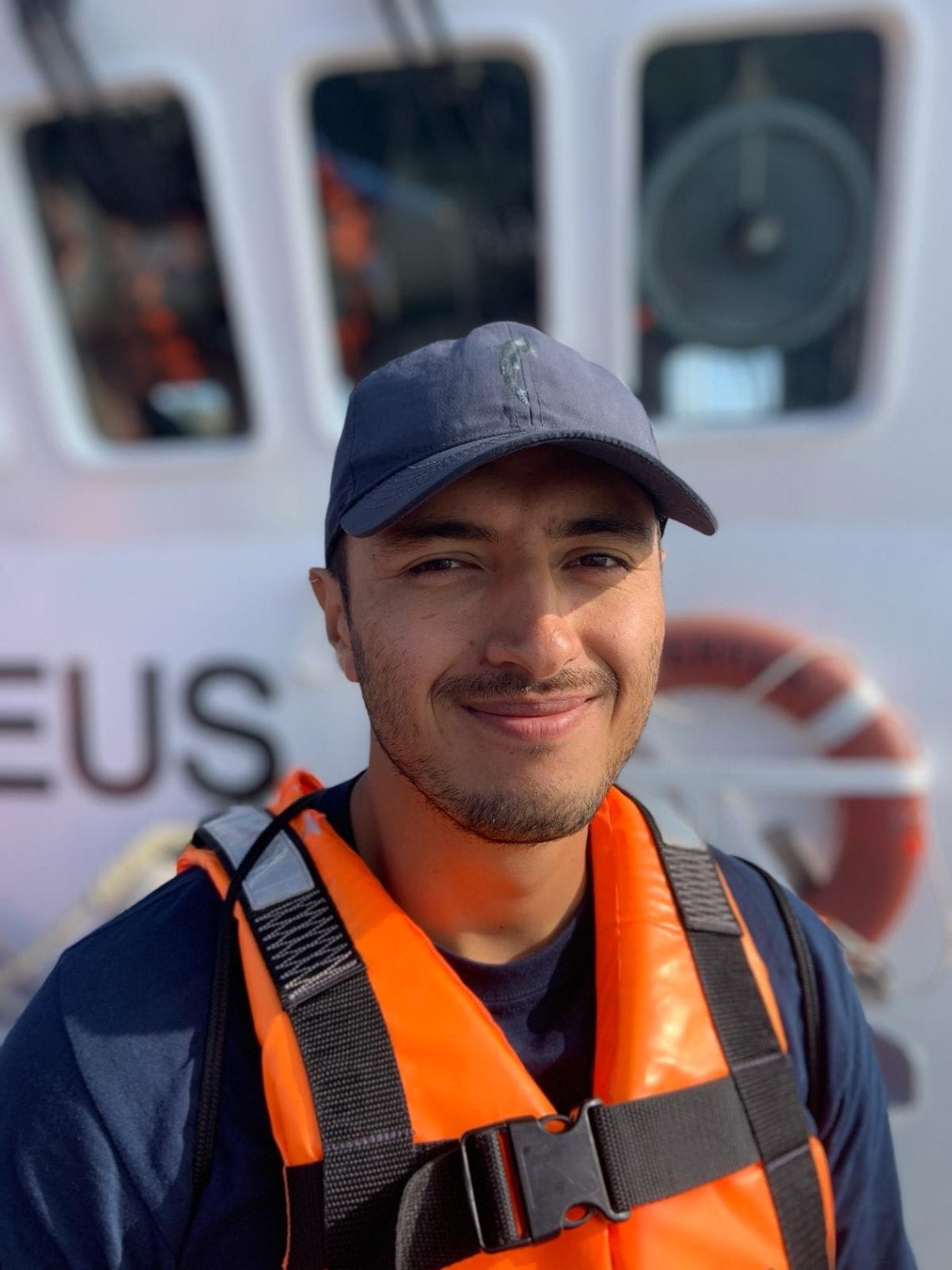We love opening our inbox and seeing familiar names of MSEM alums reaching out to catch up and share what they’re doing now. Recently, we heard from David Carrasco (USF MSEM ‘22), who was honored with The Joseph Petulla Award for Outstanding Environmental Management Graduate Student in 2022. Each year this award is presented to an outstanding MSEM graduating student based on academic achievement and a Master’s Project that demonstrates a significant contribution to the environmental field. The award is named in memory of former MSEM director, Joe Petulla, who started the program at USF in the 1970s and led the program for more than 15 years.

who won the 2022 Joseph Petulla Award for Outstanding Environmental Management Student
and is now conducting coral reef research at the University of Queensland in Australia
Fast-forward almost two years… David is now completing a master’s thesis and pursuing a PhD position at the University of Queensland, Australia where he’s conducting research doing a time series analysis on changes to the coral reefs of Heron Island and exploring opportunities to utilize satellite imagery, mapping, ecological modeling, biogeochemistry, and hydrodynamics to better understand what’s happening in this rich ecosystem.
This work builds on David’s award-winning USF MSEM Master’s Project, which focused on the impacts of nitrogen enrichment on corals and how remote sensing can be a useful tool. The full text of his paper is available for download here.

In catching up with David, we were able to learn more about his current work and gather his advice to current and prospective MSEM students.
What motivated you to work on coral reefs?
David: I’ve dreamed of working with the ocean since I was little – despite growing up in the landlocked city of Bogotá, Colombia. Watching David Attenborough and Sylvia Earle explore the natural world, especially the oceans, I always felt the need to be part of those who work to better understand it and protect it.
Over time, I’ve learned that life on our planet heavily relies on the health of our oceans, and coral reefs are pillar ecosystems. Protecting them is not only the job of scientists – it is a task of everyone. I want to educate people and provide tools for them to be able to help in ways big and small.
My motivation is to help people connect with the natural world, understand their ecosystems (particularly coral reefs), and manage them appropriately.
What have you found most surprising while conducting your current research?
David: Conducting research can be heartbreaking, because you see a lot of these ecosystems (not only coral reefs) dying – without people even noticing. The most surprising thing I always like to point out, though, is how resilient our oceans can be. Just as human-driven stressors have damaged ecosystems, so can human-driven efforts can help them come back.
What do you wish more people understood about protecting coral reefs?
David: When humans care, when we are educated on these issues, we can take action and make a difference very quickly. Our ecosystems can respond and recover quite efficiently. I wish more people knew this, and I wish more governments acted on this. We have the tools. We have the knowledge. We have the resources. Now, if we can teach people how to be part of the solution, we can turn this around and have thriving coral reef ecosystems again!
How did your MSEM studies and research prepare you for the research you’re doing now?
David: MSEM provided me with a very multidisciplinary background. I was able not only to understand the science behind environmental management but also to apply it, communicate it, and transform it into tangible actions.
With my ecology emphasis, I learned to understand ecosystems at a wider scale. This helped me to see not only species-specific requirements in restoration (e.g. coral nurseries) but also to understand how managing ecosystems and educating communities on their conservation and restoration can make a big difference in outcomes.
Additionally, with my GIS certificate, I was able to learn a lot about remote sensing, which is a massive component of what I do today. I learned how to use satellite data in ways that facilitate management, reduce costs, and allow people to see the bigger picture more easily.

Do you have any advice for current MSEM students?
David: Believe in yourself. Ask for help. Take risks.
Everyone is there to help you, and some people have a lot more experience in certain areas. Being surrounded by these kinds of people is a privilege, and it can help you learn and grow. Every risk you take is an opportunity, so embrace being uncomfortable and facing new challenges
Be patient with yourself. It’s ok to not have all the answers, but if you put in the work you’ll get where you want to be.
What was one of your favorite experiences at USF?
David: By far, my favorite experience at USF was the amazing sense of community in the MSEM program.
Everyone really is there to help you learn and grow – as a scientist and as a person. The professors, the lab managers, the administrative team… everyone wants to provide you with the tools, the knowledge, the resources, whatever they can, to help you achieve your goal. Also, I was able to learn from people from all kinds of backgrounds and with many different interests, which provides that well-rounded perspective that helps you stand out as a professional.
Finally, where is your favorite local spot in Queensland that we should put on our “must-visit” list?
David: It’s difficult to choose one place, as every ecosystem has its own beautiful things – each different, all with so much to offer. And Queensland is home to the Great Barrier Reef! If I had to recommend just one particular place, I would point to Heron Island. The reef around this island is incredibly healthy, and even though it is currently suffering a bleaching event you can still find a very diverse ecosystem with large coral assemblages, megafauna such as sharks and rays, baby turtles hatching, migrating whales… it’s a small paradise on Earth!







Hervi Santiago Rivera
21 Apr 2024 — 4:19 pm
David Carrasco is an amazing human been, always working with enthusiasm about his passion coral reefs. Well done David.